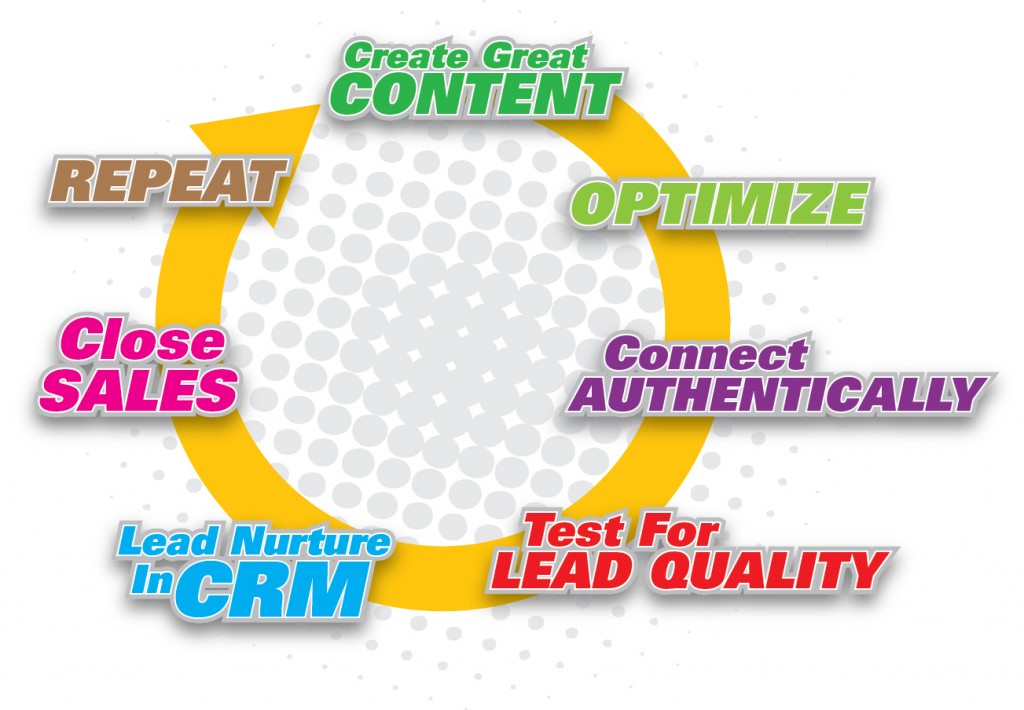
Image courtesy of contentmarketinginstitute.com
Search Engine Land is a go to site for all topics related to search. So when I saw an article on how to create great content, I naturally assumed the focus would on how content should be organized and tagged for search engine indexing.
The author Rick DeJarnette does deliver some good tips on that front. But in addition, he understands that great content is about making your thoughts memorable for both search engines and humans.
First for search engines. DeJarnette explains that if you’re not taking advantage of <title> and <meta> description tags, you’re missing an opportunity to tell search engines what’s on your pages. He also talks about being very clear with image alt text, because search engines can’t read any text inside the vast majority of images and rich internet applications (RIAs) like Flash and JavaScript.
Now for us humans. DeJarnette then outlines the qualities of great content that have nothing to do with search engines. This list reads like a transcript of my conversations with clients, stressing the need to constantly challenge ourselves to keep content quality high.
Here’s his excellent checklist:
- Is the content informative?
- Is it authoritative on the subject matter?
- Is it interesting?
- Is it well-written (complete sentences are important, but so is approachable writing rather than being stodgy)?
- Is longer content broken up into well-organized sections by headings?
- Does the content make good and interesting use of visual elements?
- Is the writing free of embarrassing spelling errors or remedial grammar problems?
- Is it written appropriately toward its intended audience?
- Is the content free of industry-insider jargon, focusing instead on terminology your readers would use (and search for)?
- When appropriate, does the content show your unique voice or even a sense of humor?
Executing on an effective content marketing strategy isn’t easy, and it takes dedication. It’s possible to let the week in, week out cycle of publication, promotion and integration with the sales process distract you from the quality of your content. That’s why challenging yourself internally with a checklist like this is so important.
Finally, I enjoyed this column because it shows how content marketing calls on different professional disciplines. My professional training is in public relations, and over the past decade I’ve learned some of the more technical aspects of the role — online publishing platforms, SEO, social media tools and the like.
My guess would be that DeJarnette comes from a more technical background. Yet he has clearly learned how vital it is to exhibit thought leadership, to tell a good story. Addressing both these aspects of great content will differentiate your company and make your content marketing strategy a success.
Want to subscribe directly? Here’s how: